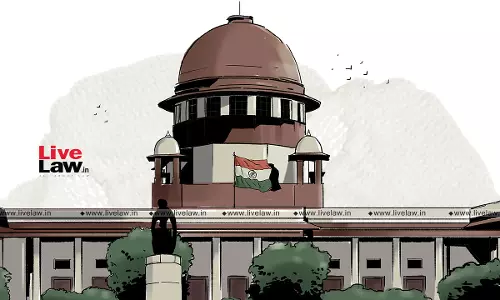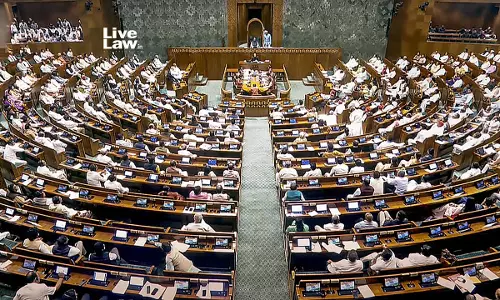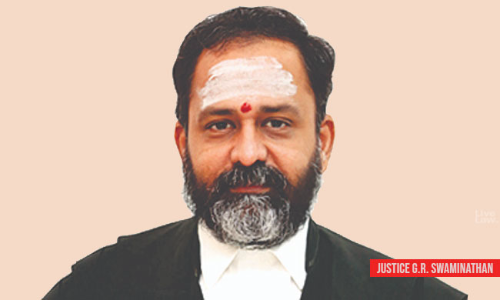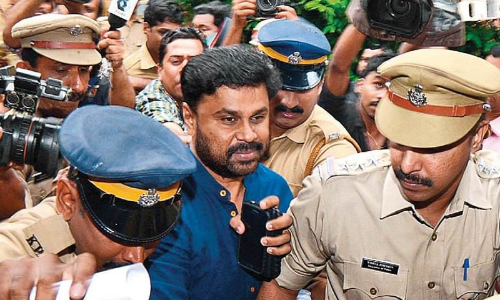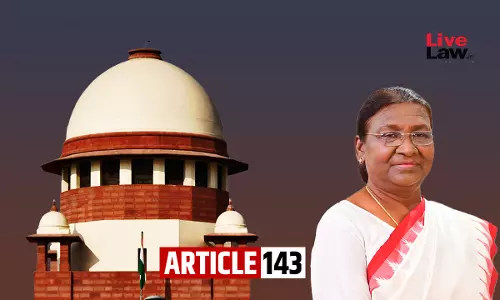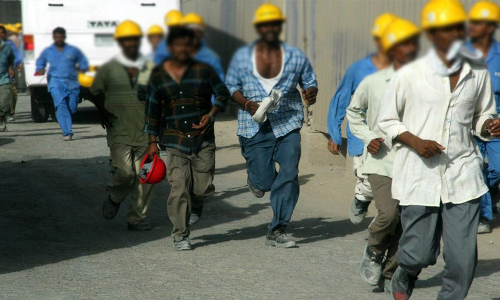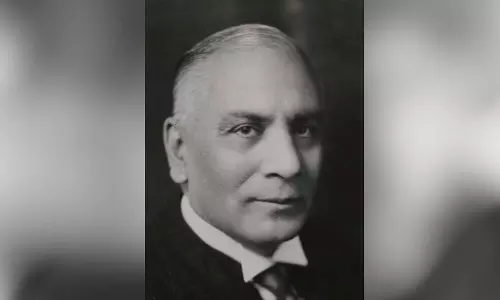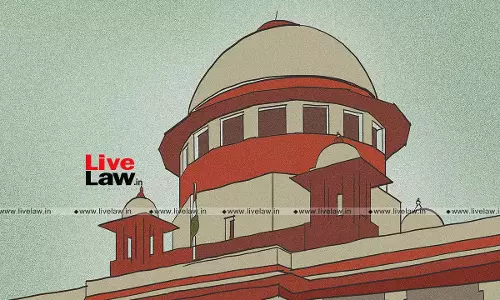Articles
Understanding The Interplay Between Order XXI Rule 66(2) And Rule 90 CPC: SC Clarifies Limits Of Post-Sale Challenges
Execution proceedings under the Code of Civil Procedure, 1908 (CPC) often give rise to more litigation than the suit itself. One recurring dispute concern as to when a judgment-debtor may challenge an auction sale and what grounds may be raised. The Supreme Court's recent judgment in G.R. Selvaraj (Dead), through LRs. versus K.J. Prakash Kumar and others, has finally clarified the long-standing confusion between Order XXI Rule 66(2), which deals with settlement of the sale proclamation and...
Capital Conundrum: Threading The Needle Between Governance And History
In the arcane world of Indian parliamentary procedure, it is rare for a mere listing in a legislative bulletin to trigger uproar in a state. Yet, that is precisely what happened recently. The inclusion of the Constitution (131st Amendment) Bill, 2025 in the tentative list for the Winter Session, aimed at bringing the Union Territory of Chandigarh under Article 240, set off a political...
Impeachment Motion And Judicial Independence
The recent move to present a motion before the Speaker of the Lok Sabha seeking the impeachment of Justice G.R. Swaminathan for his judgment in the Tirupparankundram Deepam case marks a disturbing moment in India's constitutional life. What was once an extraordinary remedy reserved for proven misbehaviour or incapacity is being invoked as a rhetorical and political tool to signal disapproval of a judicial outcome. Such a development raises troubling questions about the future of judicial...
'A Law That Doesn't Know What Law Is': The Conceptual Collapse of Juvenile Justice Act, 2015
The Juvenile Justice Act, 2015 is not simply a diluted criminal statute- it is a confused one. It does not know whether the child in conflict with law (CICL) is an accused or a beneficiary, a deviant or a victim. It borrows the architecture of adult criminal trials like inquiries, evidence, bail, and remand, yet insists it is not prosecution. It renames punishment as rehabilitation, jails as homes, and accused and guilt, both as conflict. But beneath the changed language, the procedure remains...
Acquittal In A High-Profile Case And Structural Crisis Of Criminal Justice Delivery
The recent acquittal of Malayalam film actor Dileep in the much-publicised abduction and sexual assault conspiracy case has once again placed India's criminal justice system under sharp public and legal scrutiny. Even before the detailed judgment has been uploaded and examined, public reactions across Kerala and beyond have been deeply polarised. While one section views the verdict as a complete vindication of the accused, another believes that justice has failed the survivor. This sharp divide...
India's Constitution: Present Tense, Future Tenser
Can the President acting on behalf of the Government seek to undo a judgment or a binding precedent of the Supreme Court by invoking the advisory jurisdiction of the Supreme Court under Article 143 of the Constitution?Can the Supreme Court under the guise of expressing its view of the law in a “functional reference”, cripple the essential functions and functioning of the elected legislature under the Constitution?Can the Supreme Court selectively re-write the Constitution while rendering its...
War Against Psychotropic Drugs – India's Policy Conundrums
Saddled with two of the World's largest cartels of illicit opium production, the Golden Crescent in North-West and the Golden Triangle in the North-East, with approximately four million psychotropic drug users[1], India's legal system faces a Herculean task.India's commitment on prohibition of intoxicating drinks & drugs is enshrined in Article 47 of the Constitution, mandating the State to endeavour “… to bring about prohibition of the consumption except for medicinal purposes of...
Is Definition Of 'Appropriate Government' Under OSH Code, Appropriate?
India's labour-law regime, built over decades through a framework of over 40 Central and 100+ State laws[2], had become complex, fragmented, and often inconsistent with respect to definitions, enforcement, and jurisdiction. The multitude of statutes created overlapping compliance burdens and, among other issues, persistent confusion about which authority was competent in particular situations. To resolve this, the Second National Commission on Labour (NCL) was constituted in 1999[3] with a clear...
Tej Bahadur Sapru- A Sesquicentennial Tribute
December 8, this year is the 150th birth anniversary of Sir Tej Bahadur Sapru who was one of the best legal minds of the country. It is only appropriate that we remember him and light his memory. The likes of him belong to the ages. Very rarely do we see someone like him.A jurist and scholar of the highest repute, he was a great constitutional lawyer who achieved brilliant success. It is said that Sir Tej 'had something which does not necessarily go with superior...
Name Clashes: Resolving Conflicts Between Corporate Identities And Trademarks
With the competitive corporate environment in India, disputes over identical or similar names have become increasingly common, as trademarks and company names frequently overlap. Confusion and disputes over ownership and resemblance with existing entities and goodwill have often seen the emergence of fresh startups pitted against long-standing businesses. This article looks at the development of Indian law over such disputes from the shift from Section 22 of the Companies Act, 1956, to Section...
Invisible Corners Of Supreme Court Of India: Paradox Of Non-Reportable Judgments
The public discussion surrounding Justice (Retd.) Abhay S. Oka, who authored nearly ninety-nine non-reportable judgments, has revived a long-standing institutional puzzle, why does the Supreme Court of India, a constitutional court committed to transparency, continue to categorise many of its reasoned decisions as “non-reportable”? The issue does not concern judicial competence but the persistence of an opaque practice with no statutory foundation, no codified criteria, and little...
Fifty Thousand Children, One Fragile System: What The New India Justice Report Tells Us About Juvenile Justice
Ten years after Parliament rewrote the law for children in conflict with the law, the institutions tasked with delivering that promise look worryingly similar to the ones the law was meant to replace. At the launch of the India Justice Report's new study on juvenile justice, the conversation in the room kept circling back to the same disquieting theme: an Act built on rehabilitation, and a system that continues to default to the instincts of the criminal courts. The numbers tell one story, but...



